Doctor Who’s Ncuti Gatwa on embracing his identity to find pride and joy
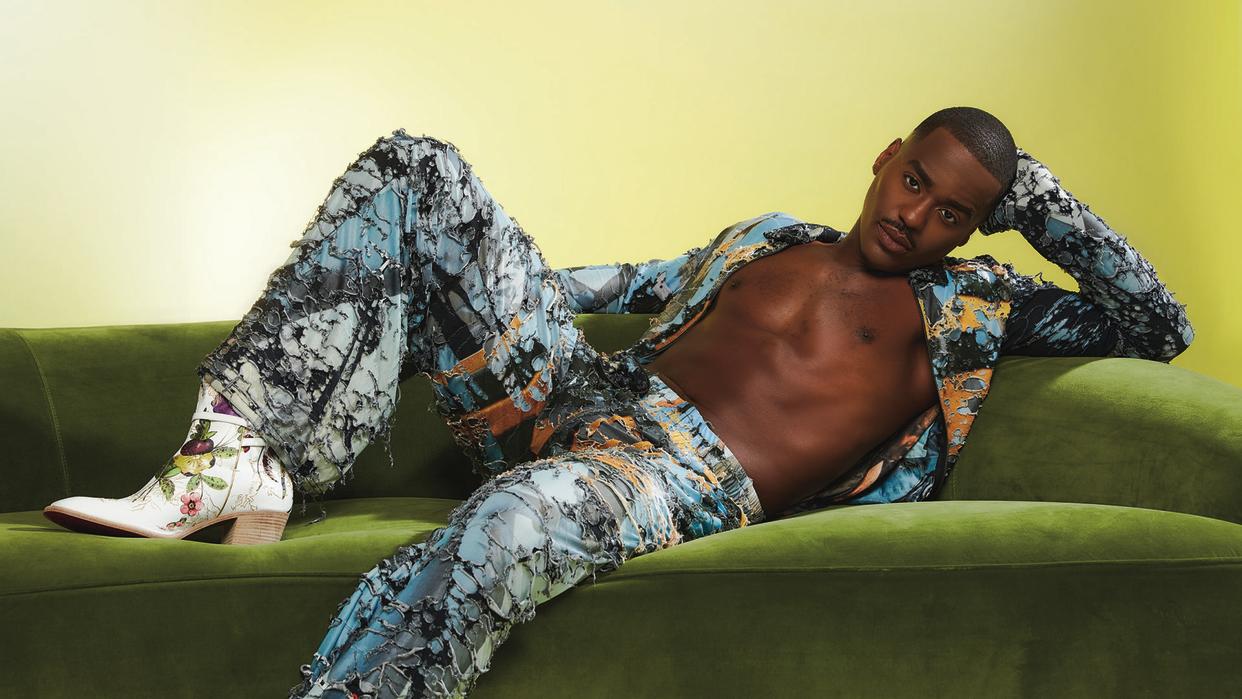
This interview is taken from the new May/June issue of Attitude, available to order here.
The first full outing of Ncuti Gatwa’s Doctor Who has yet to drop, and cast and crew are already in full swing shooting the follow-up season. If ever there was a vote of confidence by a major broadcaster in the success of a return/revamp/re-tweak of a long-running franchise, this is it. As if the return of Russell T Davies as showrunner and scriptwriter wasn’t enough to create a buzz among the Whovians (as the committed Doctor Who fans are called), the epic series that celebrated its 60th anniversary last year is back and more relevant — and perhaps more needed — than ever before.
It’s relevant because the title role is being played by one of the most exciting British actors of his generation, a Black and queer man from Rwanda, making this incarnation of the Doctor — the 15th — a casting that is more reflective of the world around it. And it’s needed because, to quote two-time Doctor David Tennant, the world absolutely needs more kindness than ever before. “The Doctor is constantly fighting for every life, even his villains,” says Gatwa when we meet for his interview in a posh London hotel. “He shows mercy and compassion to all because he understands that there’s a need for everything, and that we need each other. It’s really nice to have a show like Doctor Who running after all these years in this era that we are in now.”
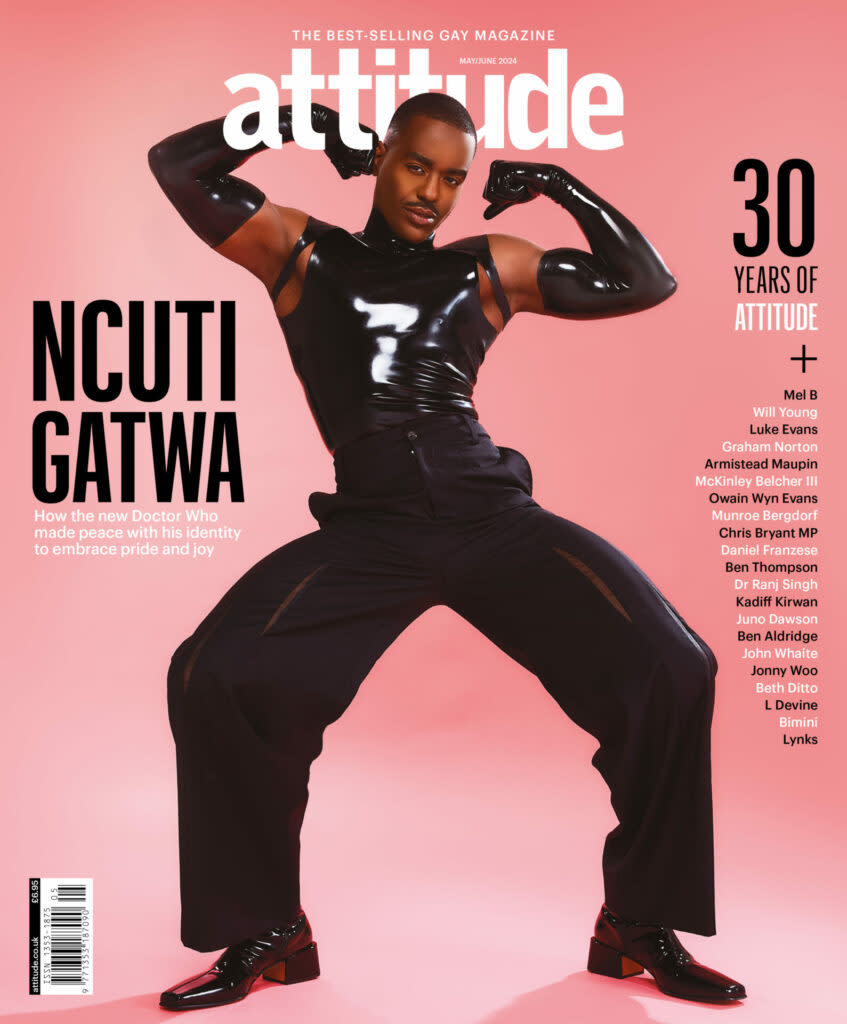
A breakout role in Sex Education as Eric would go on to make Gatwa more than just a global star. With his many intersectional identities, it helped him find balance and acceptance. As he shares in this interview, it was a gift that was more than just a job; it helped him find inner peace. As Sex Education wrapped, he found himself in a supporting role in Barbie, arguably the film of 2023, before taking ownership of the Tardis in its Christmas Day special.
Even after season two of Doctor Who wraps, Gatwa is not ready to slow down. His energy is in abundance as he vogues, poses, leaps, dances and shakes his tushy on set for his Attitude cover shoot. “I think this year my break will be to do something different creatively in between. Or another project, just, like, another character,” he teases. “That will be my mental break in between. But I dunno. We’ll see. We’ll see whether I work or take a holiday.”
His enthusiasm is infectious. As we speak, Gatwa gesticulates wildly, his eyes widen, whether it’s to denounce the current government’s scapegoating of minorities to distract from its abysmal performance in power or to regale me with stories about his Oscar-worthy Academy Award performance. He also speaks freely about how therapy has helped him deal with internalised homophobia — an issue he didn’t realise he carried with him until Eric came along to show him otherwise — and even offers up the information that he’s currently happily dating a muggle — aka, a regular civilian and not a celebrity.
Are you still mid-shoot on Doctor Who?
Yeah, midway through season two at the moment. We’ve just finished episode five, [I] want to say? Yeah, we’ve got three more to go. So, it is going quickly.
And then you can have a holiday?
And then I can have a holiday. [But] maybe this other project’s building, so I might end up working all the way through.
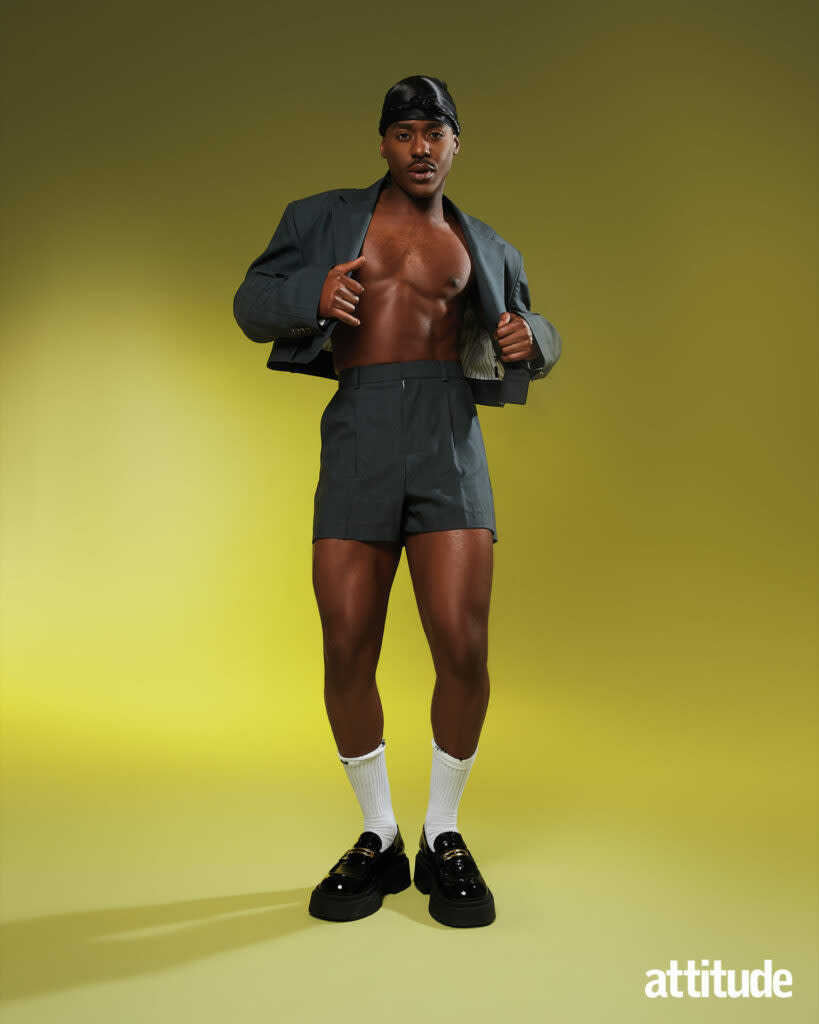
Russell (T Davies) said on the Attitude panel at this year’s Student Pride that he created the new Doctor around your casting — so, no pressure then! How does it feel that you didn’t just fill a role, but you shaped it in a way?
My God. Is that what he said? It must be true if he said it. It’s interesting because a couple of the questions that I’ve had have been like, “What were the conversations that you and Russell had in terms of shaping the character?” And I am like, “Actually, there weren’t many.” He really trusted me to just take the character where I wanted. But I think funnily enough that is what I found so difficult about season one. Every day, I’d come home, and I’d be like, “Was it OK? Was it right? Oh my God, it wasn’t right. We need to reshoot it. I need to redo this bit.” And he was constantly being like, “It’s fine, it is great. This is what we want: we want what you’re doing.”
Was that through a sense of anxiety or self-doubt?
Certainly, the weight of 60 years of a show, because of the heritage — it was specific to this role. I never had that level of anxiety with any other role. It was specific to Doctor Who because this is a special show that lives in people’s hearts. People have had it passed down to them. They watch it with their grandparents. It is a thing you have to care for.
The cast is wild, and very queer. What’s it like working with Jinkx Monsoon and Jonathan Groff?
Incredible, incredible. They brought such depth, talent and creativity. I mean, Jinkx is playing a super villain and one of the most powerful that the Doctor has ever faced. She filled that role with such theatrical energy, it was incredible. She had just come off Broadway. How she was using her voice, body, all the tools in her acting toolkit… It was incredible to see that energy lock on in a camera space. For me, as a theatre actor, I was like, ‘This is just really, really, really great to see someone’s craft so finely tuned and placed so well in this space.’ She is a formidable foe character-wise, and also just a great actor to learn from. Jonathan Groff brought something to the show that I don’t think we’ve seen in a long time, which will make sense when it’s released. But yeah, it definitely brings out a new side to the Doctor. It was really nice to see the Doctor vulnerable. Jonathan is so talented. He has such an ease to him and is such a kind, kind, kind person anyway. Seeing the world enriched with these incredible queer performers, bringing elements of themselves to the table, was amazing. The world which Russell’s creating is so perfect
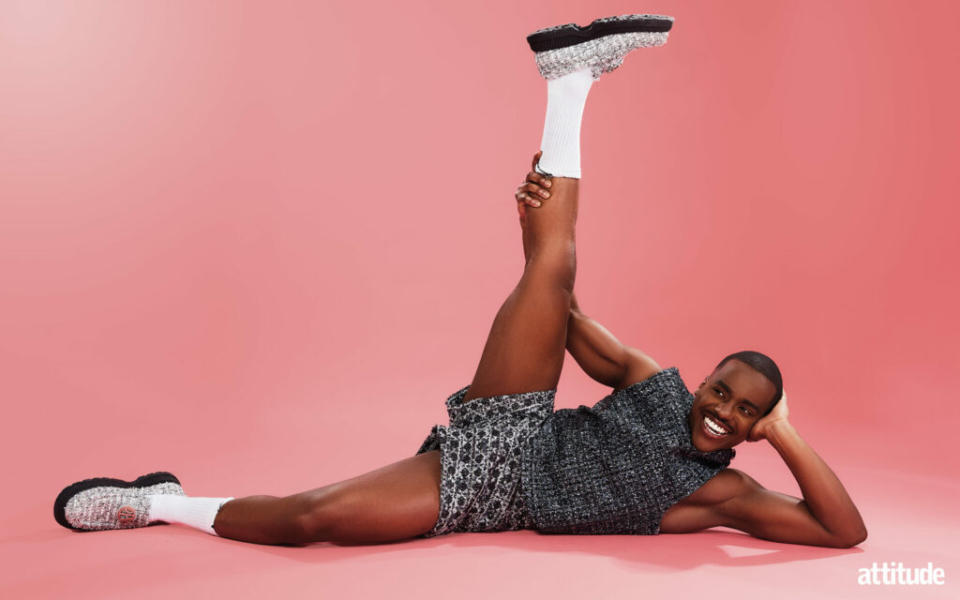
Was there much room for improvisation?
Once we get the scripts, they don’t tend to change. Each line has been written for good reason. That gives you the boundaries to play in. But in terms of where we take those lines, how we say them and how we’re creative in the space, that’s all down to us. And Russell tends to know the performers that he’s bringing in and he’ll write for us.
Did you read social media reactions when they announced you were cast, or that the Doctor would be a Black man?
No, no, no, no. I got a brief glimpse of it in initial casting, but it’s not something I’ll avidly keep up on. The hate? It is kind of fascinating to me because there’s so much energy they’re putting into it. You are so angry over something so inconsequential that you can’t be an interesting person. You can’t have much in your life. I don’t have the time to do that. And so, I think they need to go find a hobby is one thing. But another thing is that we do see a shift happening in casting, in positions of power and in the status quo. I mean, not a fast shift, things could tip over the other way a little bit quicker, but you see people kind of malfunctioning because things are changing.
Does the issue of race appear in storylines when they’re going to Earth’s past?
Race does make appearances, yes. It is quite different for the Doctor. It’s not the first time. Jo Martin is the first Doctor that is Black [she played the time-travelling Fugitive Doctor in 2020], but it is the first time the Doctor’s been Black for this long. And so, we have to address those elements of the character now, because Earth unfortunately is still quite a funny little place. And so, yeah, we will be addressing those things. Russell has such a knack of being able to bring in these elements of our humanity through this sci-fi lens in a really interesting way.
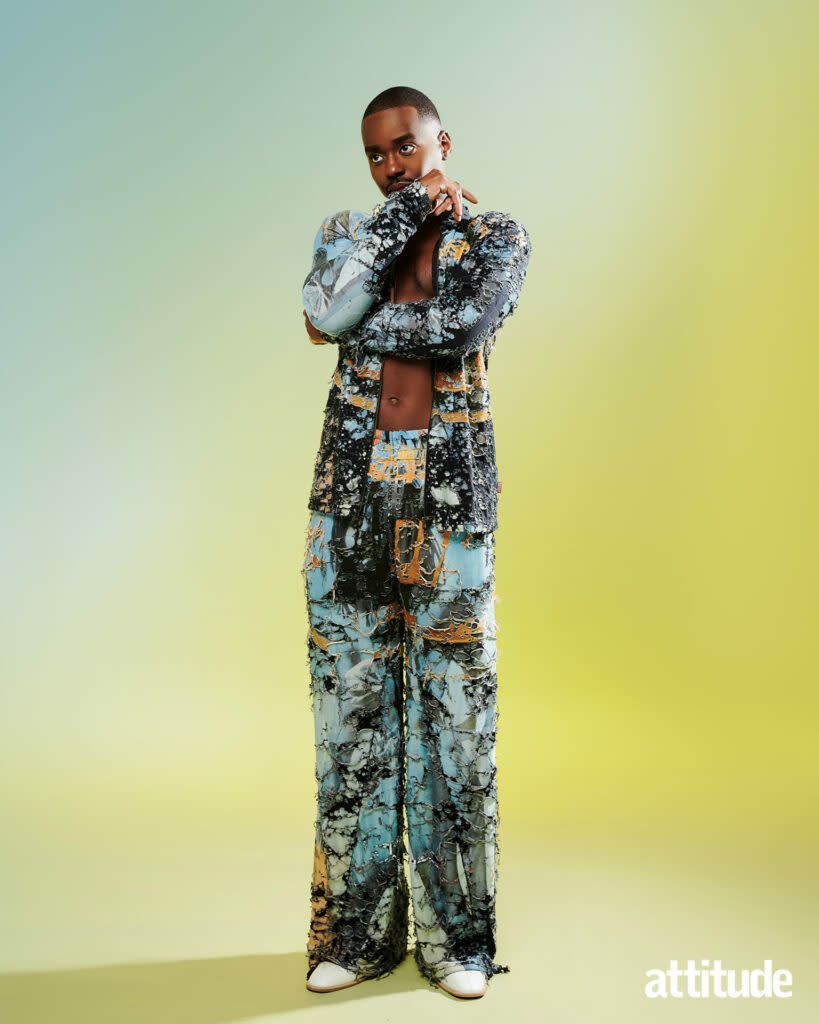
When David Tennant accepted the Rolling Stone UK Award in November last year on behalf of the BBC to mark the series’ 60th anniversary, he shared some really powerful words about how the Doctor is a symbol of kindness, and that we’ve never needed that in the UK more than now.
That really resonates. It feels like, in this country and across the world as well, we’re getting a lot more comfortable with how mean and dismissive we can be to each other. We’ve got so much access to each other nowadays, and that means people can swipe people’s importance away, like you can swipe someone away from you on Tinder. The show stands true to these ideals of togetherness, family, the underdog, adventure and curiosity in one another instead of fear and judgement. It’s like, ‘Oh, who are you and what makes you different? What makes you special? Come on board!’
There’s such a pushback against individuality, against gender diversity, against trans identities. How do you feel about the current state of the UK at the moment?
Everything trickles down from the top, and when you see politicians openly attacking marginalised communities, when you see our politicians openly attacking trans people, it makes it OK for everyone else. And it is scary to see that we’ve got to a point where it is fine to attack vulnerable people because that’s essentially what’s happening. People who are the most vulnerable, the most disenfranchised, most disconnected from everyone else are being told that they are the threats. It’s sick because it’s a hiding away of your own ineptitude. You’re going to put the blame on immigrants, Black and Brown people, trans people, queer people, to hide the fact that you are not doing anything for people? It’s easier to just create discord amongst people. It’s divide and conquer, isn’t it?
Do you feel hopeful for the future?
I had this conversation with Russell the other day and, yeah, you’ve got to try to find it somewhere. I mean, I am such a privileged man. I’m an actor in a well-paid, comfortable job, so I shouldn’t have much to complain about. But you see inequality all around and you’re like, ‘Fuck me.’ I just hope we learn to start listening to each other and to stop fighting each other because you think of huge existential things like Mother Nature coming along to give us a little slap, or AI RoboCop and his pals coming along. There’s a couple of things coming along to affect our whole existence, and we still fight each other in such crazy ways. Try to be hopeful; try to be helpful.
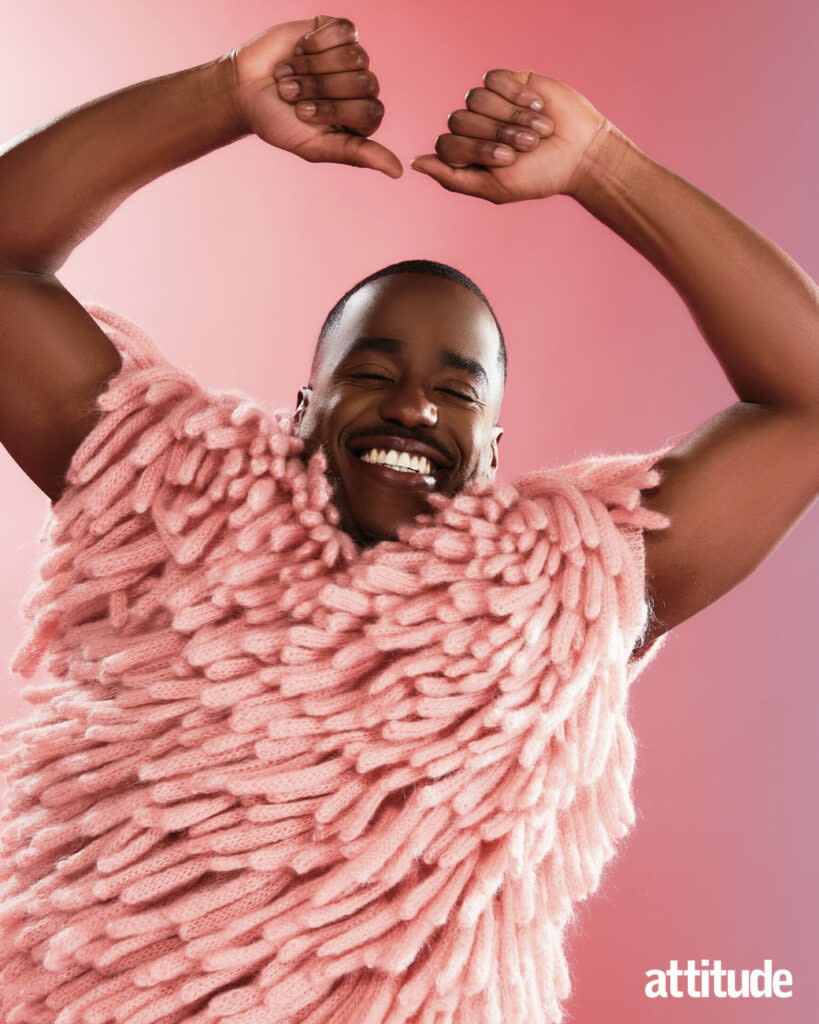
Who was the first person you saw on TV that you felt reflected you?
Funnily enough, the first time when I was like, ‘Oh, I could have a career on TV’ was when I watched Top Boy and saw a bunch of young Black men on screen, which goes to [show] how far we have come in the landscape of casting for British screen. It was not long ago. I was in drama school, so 2011.
Between being a Scottish, British, Black person, an immigrant, and a queer person, do you ever find your intersectional identities in conflict with one another?
Yeah, I do. Sometimes. It’s funny, when I’m chatting with other queer Black men about what it’s like going into the barbershop — you still lower your voice and put a spring in your step. At times, in the past, I felt like that, although not so much anymore. I feel like I’ve kind of reached a place in my personal journey where I just am who I am, and that doesn’t have to change wherever I go. I just have to exist. And it’s a privilege to do so in my position because there’s many people that are in my intersections that don’t get a chance to just exist.
I think that’s the reason why I say that I struggle with hope sometimes, because there’s a lot of things protecting me from the experiences that I could be having, should be having and have had. And I’m aware of that. I’m aware that my experience is not the typical Black queer experience. So, I’m like, ‘Shit is hard!’ Just because I’ve now been cast as Doctor Who, all problems of inequality are now fixed? Things don’t work like that. But yeah, now personally, I don’t feel like they’re in conflict with each other, but they can do for people and have done for me in the past. But I’m now just learning not to care what other people think.
It doesn’t take much to take us back to the frightened person we were.
No, not at all. Not at all. Which is why we’ve got to keep pushing for more. Lots and lots and lots and lots more diversity, lots more inclusion on our screen. Lots and lots and lots of it for all you male gamons out there! [Laughs] I did an episode the other day where it was five men in a small space, and I realised how desperate I was for female company by the end of the week. When I saw my friend again, I was like, ‘Oh my God, I feel like I can breathe.’ And I was like, ‘That’s so interesting.’ For the past week I felt like I couldn’t, that I was slightly in defence mode. They were all lovely, lovely men, but there was still something in me that was like, ‘Keep a little bit of your guard up. Don’t let them get hold of you.’ As soon as I saw my friend again, I was like, ‘Oh my God.’ [Breathes a sigh of relief.] Women have just always been my safe space. I think [that’s true] for many a queer boy. I feel safe when I’m around women. I dunno whether that’s a really gendered thing to say, but my nervous system seems to be a lot calmer when I’m around women than it is when I’m around men. Will that ever go? I don’t know.
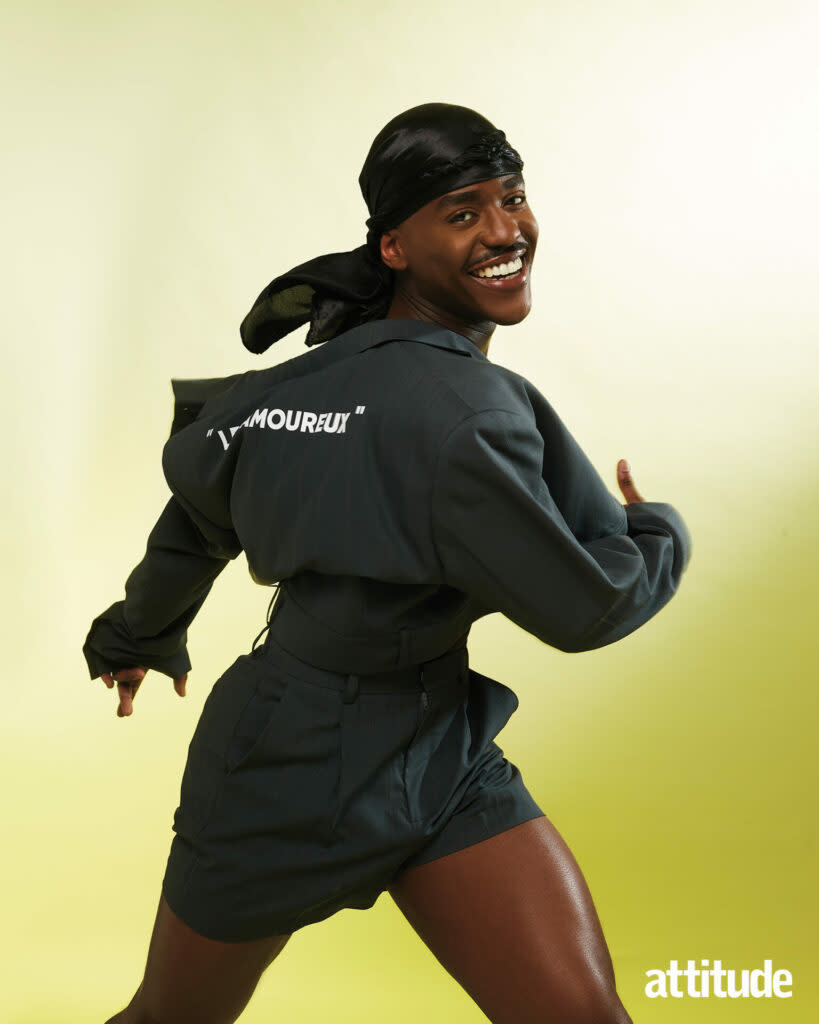
I don’t think it needs to. You probably have more of a gift in that than some men because you let that in you. Whereas some men don’t…
Right, right, right. I guess they fight it.
You must have been in your element with Barbie then.
I was in my element in Barbie! And also, it was a whole bunch of dance, and a whole bunch of queer men, as well. Barbie was such a safe space. It just felt like such a safe space every day, which I think was down to Greta [Gerwig] and Margot [Robbie] leading it, without a shadow of a doubt.
It felt like a natural progression from Sex Education, which in itself was game-changing in terms of the dialogue and the frankness in your character. What was that journey like for you?
Eric started off like a lifeline. I needed a job. I had to pay my bills. It was literally, ‘I need a fucking job.’ And it happened to be a huge Netflix gig. My agent was like, “You’re definitely going to be able to afford an apartment.” I was like, “Oh, OK.” That’s what it started out to me as, ‘Just do your best thing with this job.’ It was only when we actually moved to Wales, and I’d read all eight episodes, that I was like, ‘Wow, this character; this is very interesting.’ By the end, Eric ended up being that little surprise that teaches you more than you could ever teach him. That’s what it ended up being to me. He taught me to be braver.
Did you have discussions with the writers as the series went on about what happened with Eric?
We definitely had conversations. It was an ever-evolving conversation as to where they want to take the character next. They would reach out and chat to us about where they thought they want to take the character. And they would ask what we thought of that. Laurie [Nunn, series creator] was definitely open to it being a collaborative process.
The struggle between culture and religion with personal identity is so common for queer people. They are often presented with the choice where they have to walk away from one in order to have the other. But I thought it was beautiful how there was a fusion in that, and Eric found a balance.
That’s what he taught me. To answer your earlier question of, do you feel like there’s intersections that fight against each other? I think through playing Eric, I’ve learned that no, they don’t. I’m fully everything that I am. They’re all allowed to exist in me, and they all make me [into] one thing, and that’s what it should be for all of us.
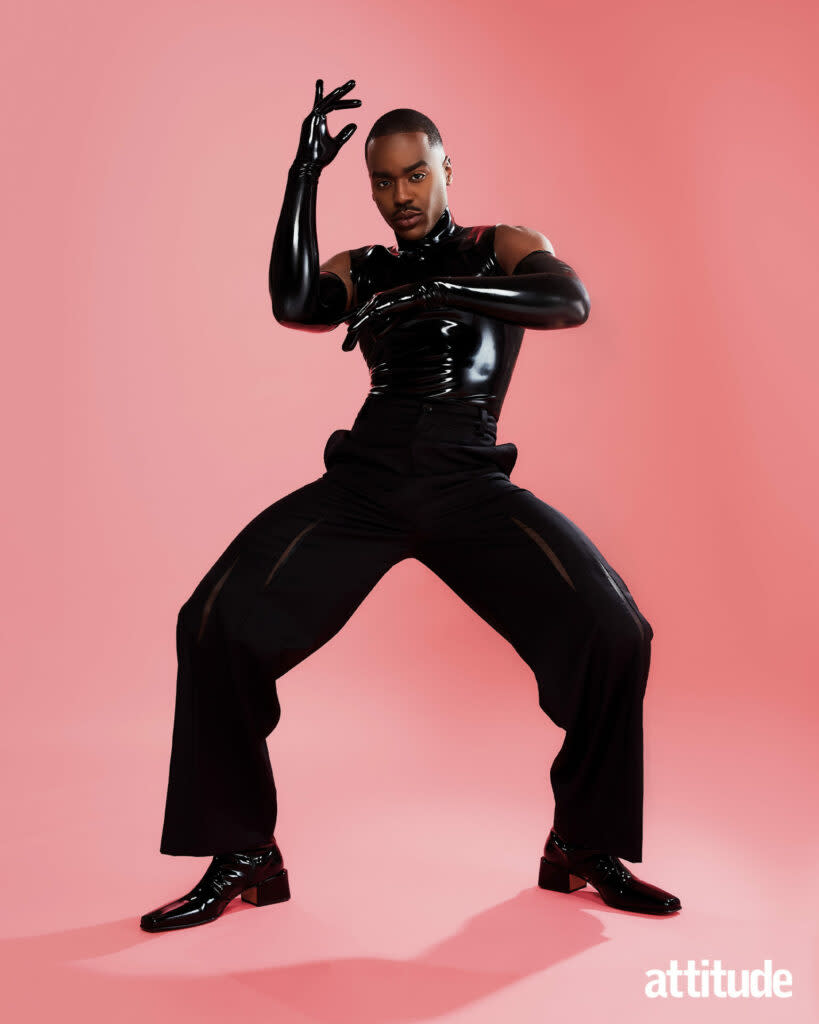
When was the last time you experienced racism or homophobia?
Microaggressions exist everywhere. I’d say that is a daily thing. You pick and choose what things you’ll allow to stick with you, to affect you, or to say something about. Homophobia, I don’t know — other than my own internalised homophobia that I’m working through in therapy — not for a little while.
How far are you on that journey from where you were a year ago?
I didn’t really realise I had any internalised phobia until I came into the public eye. I always thought that I was the most free-spirited person. No one could tell me what to do. I do whatever I want. Until I came into the public eye [and] I was like, ‘Oh, I don’t know.’ It is an ever-evolving journey.
I think it’s in all of us. It’s hard for it not to exist. All these movements in equality, like same-sex marriage, we didn’t have that as kids, that was just 10 years ago, or the Equality Act before that. So, it takes a while for us to unlearn those patterns of behaviour.
What I can do is try each day to tackle that and become more proud of who I am, fully. But it’s a long old slog.
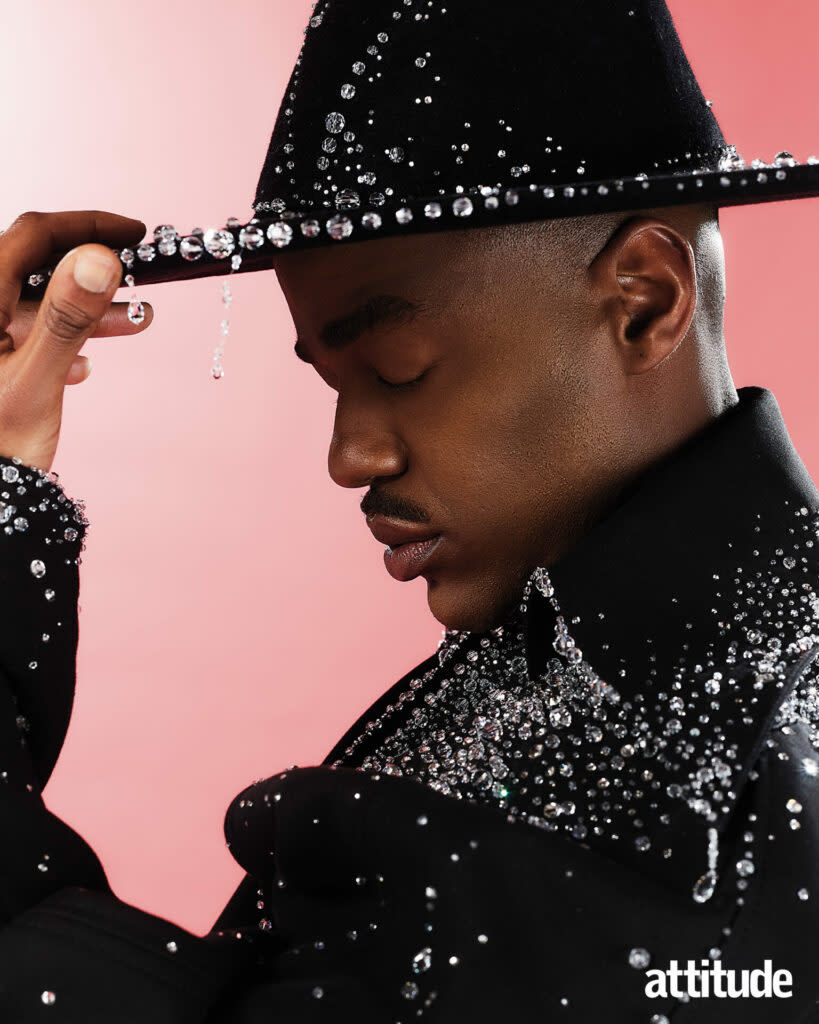
On a scale of 1 to 10, where 1 is total work in progress and 10 is fully realised, where do you sit on that scale in terms of your personal happiness?
Complete fulfilment being what? A 10?
Yes.
I’d go between four and six. But I’d say maybe that’s the same for us all.
Yeah. I think anyone would be deluding themselves if they said they were a 9 or 10.
But you do meet those people every so often in your life. Like, ‘Wow, my God, you grew up in such a functional family that you have no issues?’
Do you have any regrets or is there anything you would’ve done differently in the past?
No, not so much. I think I’m constantly telling myself, ‘Live, don’t just plan and live in your head. Live in the present.’
Take a moment to smell the flowers.
Yeah, I’m constantly telling myself that.
You got to perform at the Oscars. That’s a moment…
Yeah, I did get to go to the Oscars. I met someone recently, and they’ve been a real reminder [as to why] I never date in the industry. I always date what I call muggles [laughs], like, a normal guy. But they really reminded me to actually live in your dream. The night before the Oscars, I couldn’t even drink my water. My hand was like this [shakes his hand]. The only way that I calmed it down was like, ‘OK, you have to go on and let your inner child perform.’ You get so caught up in this life that it’s important to stop and take it all in, whenever we can. Stop and breathe in the things that we appreciate, that are around us, if you’re lucky enough to have them. So, counting blessings is always a good thing.
Did you feel you were ready to open yourself up to that relationship because of the work you had been doing with yourself? That perhaps you wouldn’t have allowed them in before?
Yes. I was very, very emotionally avoidant. I strictly emotionally avoided everything my whole twenties. I was catching up with my sister the other day, and I was like, “I think from the way that we were raised, I think we were taught that we have to earn love.” Instead of it being an unconditional thing or that being an unconditional entity. I’m not saying it is that. I don’t know whether that comes from that African upbringing, that strict upbringing: get your grades, get into a good uni, become a doctor, become a lawyer. Start overachieving. It was like you have to prove why you’re lovable. We’re trained to be like, ‘If I’m not exceptional, I won’t be loved.’ Certainly, I think that was my thing. So, yeah, I think I’m just learning now like, ‘Oh, you are allowed to be loved.’ You don’t have to be excellent or aspire to that term, ‘Black excellence’. What the hell? There’s so much white mediocrity that gets celebrated, and Black people, we have to be absolutely flawless to get half of [that] anyway. So, I’m slowly training myself out of that and being like, ‘No shit. You deserve love just for existing.’ And that has taught me to be a lot more loving as well, in a weird way.
Doctor Who season 14 will begin on Saturday 11 May 2024. Issue 358 of Attitude magazine is available to order online here, and alongside 15 years of back issues on the free Attitude app.
Cover interview: @cliffjoannou
Photography: @melony.lemon
Creative and Styling: @josephkocharian
Grooming: @lindabrownlondon
Hair: @chris7_okonta
Fashion Assistant: @outfitbyaaron
1st Photography Assistant: @connortegan
2nd Photography Assistant: @tangerine_media
The post Doctor Who’s Ncuti Gatwa on embracing his identity to find pride and joy appeared first on Attitude.


